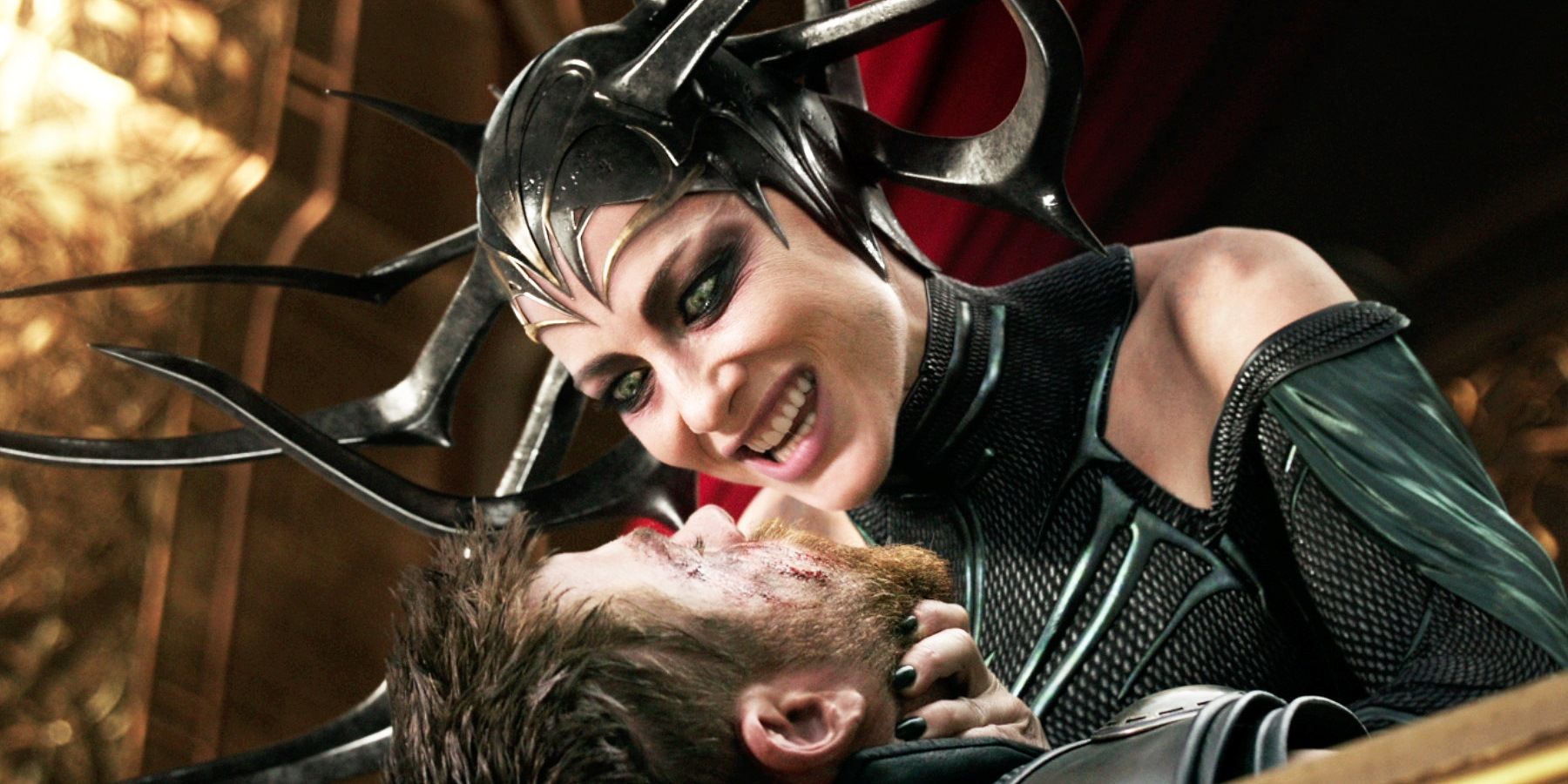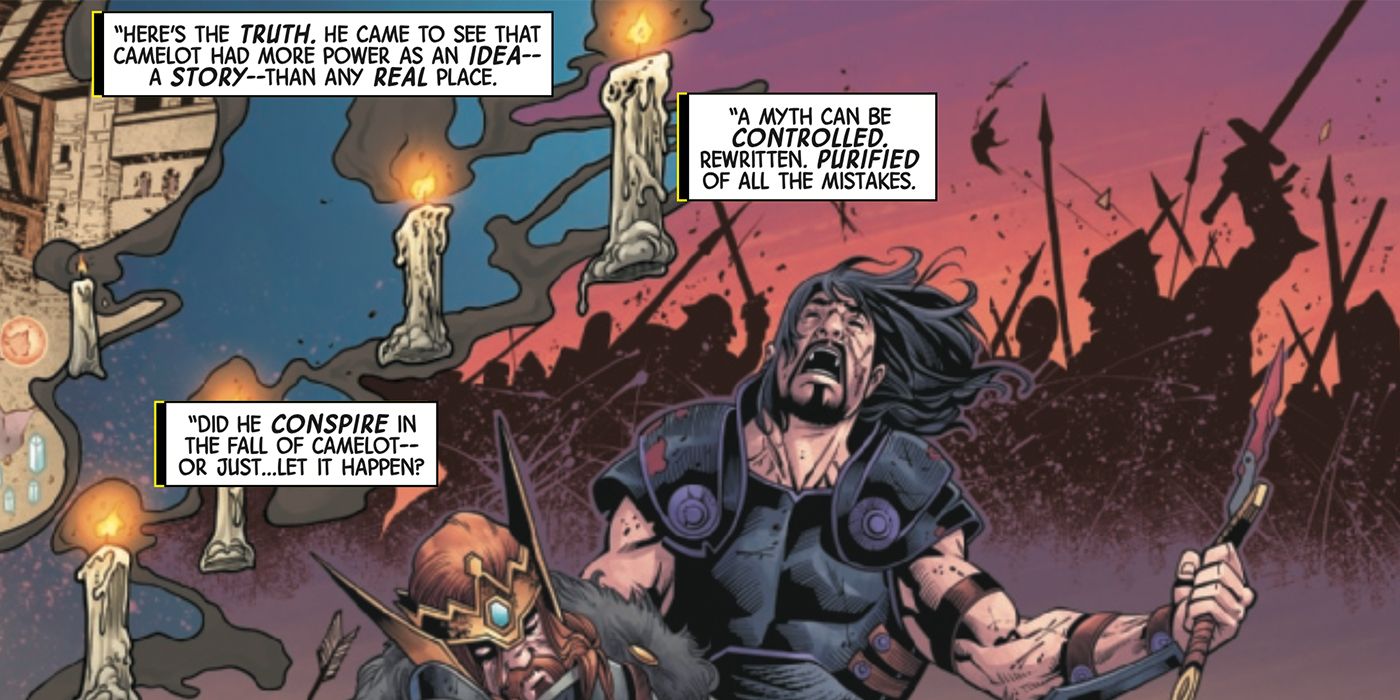
Warning: spoilers for Black Knight: Curse of the Ebony Blade #4 are ahead.
Marvel Comics has long incorporated mythological places and characters into its universe, and nowhere is that more present than in Black Knight's Camelot and Thor's home of Asgard. In practice, these places have been divorced from their mythological contexts, and have been depicted as places molded to fit the whims of their leaders. And as a new Black Knight comic shows, much of Camelot's reputation as a paradise from bygone times is a deception on behalf of the wizard, Merlin. In many ways, Camelot's troubling, hidden history resembles that of Asgard in Thor: Ragnarok.
In Black Knight: Curse of the Ebony Blade #4, the Black Knight himself, Dane Whitman, reveals how Camelot fell after King Arthur Pendragon's illegitimate son and nephew, Mordred, conspired to take control of the throne (written by Si Spurrier and Sergio Dávila, inks by Sean Parsons with Marc Deering, colors by Arif Prianto with Chris Sotomayor and Andrew Crossley, letters by VC's Cory Petit). What ensued was a bloody conflict that resulted in the destruction of the jolly Camelot Merlin had originally created with his own magic. Seeing that Camelot was now unsalvageable, Merlin, "came to see that Camelot had more power as an idea–a story–than any real place," and wiped away "everything that didn't fit his myth." In effect, Merlin sanitized Camelot so that it would be remembered as a pristine idea and place, before hiding it away in Marvel's Otherworld.
Merlin's actions bear a striking resemblance to Odin's attempts to disguise Asgard's bloody and imperialist past in Thor: Ragnarok. After Hela, the Goddess of Death, returns to Asgard, she tears down the ceiling mural of the throne room to reveal a disturbing image of Hela and Odin conquering other kingdoms. She tells her executioner, Skurge, that Odin later became ashamed of his actions, and banished her to Hel when her "ambition outgrew his." Like Merlin, Odin's solution to handling the new bloody reality of Asgard was to cleanse his realm of all evidence, resulting in yet another splintered, mythological kingdom in Marvel Comics.

As a story, Thor: Ragnarok is all about discovering and confronting Asgard's troubling past, and Black Knight: Curse of the Ebony Blade #4 follows the same themes. And while this is not the first time that Black Knight has resembled the MCU's Thor, their continuing similarities shed light on how Marvel Comics tackles mythological material. Marvel shows that myths are not just stories meant to entertain or to enlighten, but are also used as political tools to cover up objectionable parts of history. By illustrating how Merlin deliberately destroyed Camelot's authentic life and culture, Marvel reveals how myths are most powerful when they are stripped of their ties to reality.
Both Ragnarok and Curse of the Ebony Blade show the harm that this type of deception can have on heroes like Thor and Black Knight. Covering up past mistakes creates an impossible standard for them as heroes to measure up to, particularly for Black Knight as the owner of a weapon that literally feeds off his own negativity. At the heart of both problems is an urgent need to reexamine how heroism can exist alongside evil, not as two diametric forces, but as two things that never exist in complete absence of each other.
As a mythical place, Camelot exists in the Marvel Universe as an invention by Merlin. In this form, it has been "controlled," "rewritten," and "purified of all the mistakes" its inhabitants made in the past, protecting it from future criticism. Black Knight's journey into discovering the darkest secrets about his family legacy and Camelot as a whole in Curse of the Ebony Blade have unveiled Marvel's signature approach towards mythological stories. By revealing the seams that bind Camelot's artifice, Marvel shows that the discarded pieces tell a far better story of their own.
from ScreenRant - Feed https://ift.tt/3hingYM


0 Comments